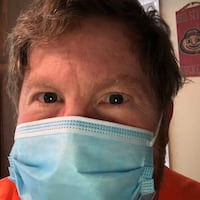“The key here is just to avoid antibiotics, unless they are needed,” Goyal said in an interview. “Having the symptoms of infection is very important.”
Over-prescribing can lead to infections that are not affected by any drugs, sometimes leading to patients’ deaths. Since 2018 in Butler County alone, there have been 25 cases of theseCP-CRE, which Goyal calls the “superbugs of superbugs,” and the Centers for Disease Control and Prevention in an 2019 report listed them as an “urgent threat” and noted also goes by the name of “nightmare bacteria.”
Sometimes after doctors conduct urine tests for other diseases, if bacteria levels in the urine are present, they prescribe antibiotics to prevent urinary tract infections even though bacteria in the urine is very common in older people and post-menopausal women, he said.
Other times, when patients themselves see test results showing bacteria in the urine, they press their doctors for antibiotics, even when they have no symptoms of urinary tract infections, Goyal said.
While patients may want antibiotics in such cases, “Ninety-nine percent of the time, these people will not develop symptoms,” he said. “If you’re not having symptoms, you’re just harboring bacteria.”
Symptoms of urinary tract infections include urinating frequently, pain or burning when urinating, blood in the urine, pelvic or lower abdominal pain, back pain, nausea, vomiting or fever.
When patients develop ESBLs, they usually have to spend days in the hospital receiving intravenous infusions of antibiotics and in isolation. That has become quite common.
“Typically, there are three or four of these ESPL UTI (urinary tract infection) patients almost every day, unfortunately,” he said. “And that’s just at Mercy Health – Fairfield Hospital.
“These can also cause outbreaks in the hospitals,” so patients are placed in isolation, with the staff wearing special gowns and gloves, discarding their clothing before they leave the rooms.
When someone has a CP-CRE — he comes across a pan-resistant patient every couple of years or so — “in those cases, unfortunately, you have to give up,” he said. Sometimes the patient survives, and sometimes not.
Goyal recommends these things:
- Patients should avoid requesting a screening urine culture unless there are symptoms of a urinary tract infections.
- Doctors should resist patient pressure. He understands that’s difficult. He tells patients it only takes him one minute to write them a prescription, but 15 minutes to explain why he won’t do so.
During the 1940s and 1950s, penicillin was the antibiotic used to treat everything, “and now, most of the bacteria is penicillin-resistant, because it was so overused,” he said.
Antibiotics that were effective 10 to 15 years ago now are not nearly as effective as they once were, he said.
“CP-CREs are difficult to treat because they are resistant to standard drugs as well as some of our ‘drugs of last resort,’” said Jennifer Bailer, Butler County’s health commissioner. “They are particularly contagious and have spread to all fifty states since their first identification in the U.S.”
Ohio health departments first were required to report them in 2018.
In Montgomery County, since those reporting requirements were set, the county saw six cases in 2018; 13 in 2019; 37 in 2020 and 20 so far this year, said Michael Dohn, medical director at Public Health - Dayton & Montgomery County.
In Hamilton County, there were 17 cases in 2019 according to Hamilton County Public Health spokesman Mike Samet, who did not provide information for all the years since 2018.
About the Author

